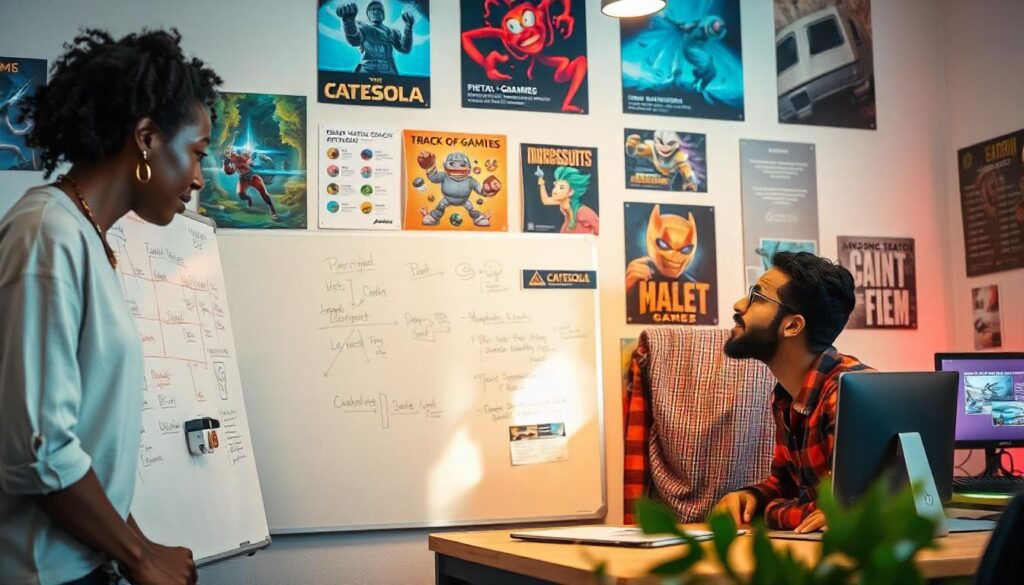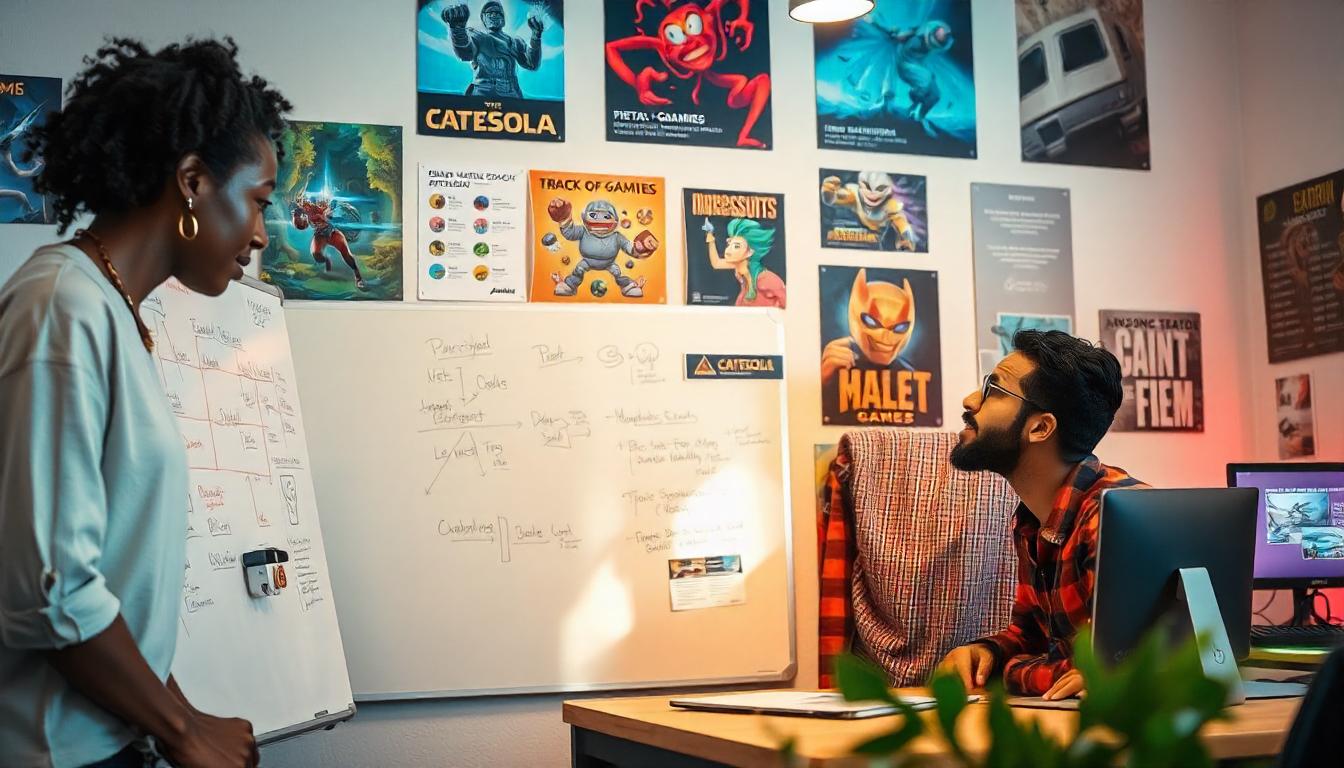

When we think of video games, our minds often wander to colorful graphics, heart-pounding action, and thrilling storylines. Yet, there’s a different side to gaming that’s gathering momentum: the power of games to enhance cognitive skills. In Australia, this isn’t just a niche interest—it’s a growing field with some of the world’s most inventive developers creating games that blend entertainment with real cognitive benefits.
The Science Behind Gaming and Cognitive Enhancement
The concept that games can do more than entertain is backed by an impressive amount of research. Studies show that certain types of games can boost memory, improve problem-solving skills, and even enhance spatial awareness. Cognitive skills like these are crucial not just for daily life but for long-term mental health. They help us stay sharp, adapt to new situations, and find solutions to complex problems.
Take, for example, action-based video games, which often involve quick reflexes and pattern recognition. Researchers have found that these games can improve players’ ability to process visual information. Similarly, puzzle games that require deep thinking and patience can improve memory and help develop a sharper focus.
Australian Innovations in Brain-Training Games
Australia has quickly become a leader in this field, with local game developers designing titles specifically aimed at cognitive enhancement. Games like Lumosity and Peak may be well-known globally, but Australia’s innovations are tailored to challenge the brain in new ways. Developers are creating games that feature immersive puzzles, memory-based challenges, and virtual environments that push the brain to adapt and grow.
One unique aspect of the Australian approach is collaboration with neuroscientists and psychologists. Developers work side-by-side with experts to ensure the games have real cognitive benefits. Australian developers see it as a mission: create games that aren’t just fun but beneficial for mental health and cognitive development.
Blending Strategy and Skill: How Gaming Challenges Boost Mental Agility
While brain-training games are intentionally designed to improve cognitive skills, other areas of gaming can unintentionally contribute to mental agility. For instance, online casinos are a major component of Australia’s gaming landscape, drawing millions who enjoy the thrill of real-time strategy and quick decision-making. Online casino games like poker and blackjack demand a level of focus, memory recall, and strategic thinking that can, in many ways, mirror the cognitive exercises found in dedicated brain-training games.


Ryan White, an expert from the online casino platform truebluecasinos.com, mentions that “Online casino games, particularly those with live dealers, can push players to make swift, strategic choices under pressure, which is itself a test of cognitive function.” This intersection of entertainment and cognitive challenge means that for some players, online casinos offer more than just a chance at winning—they also provide mental stimulation.
In a broader sense, Australian developers are exploring the idea of merging traditional brain-training elements into gaming experiences like online casinos. This includes features such as memory-based challenges, problem-solving games within the casino platform, and even attention-based exercises. Such integration could make online casinos a surprising platform for mental training, which adds a whole new dimension to the gaming world.
How Cognitive Games Work: Mechanics and Design
So, what makes a brain-training game effective? Australian developers focus on several key elements in their game mechanics. For instance, memory games often start with simpler tasks—like recalling a sequence of numbers—and gradually introduce more complex challenges. These games build memory and concentration progressively, ensuring that players don’t just retain information but can also process it quickly and effectively.
Another critical element is the balance of challenge and reward. Effective brain-training games provide feedback that lets players see their improvement over time. This not only keeps players engaged but also reinforces their cognitive growth. Many Australian games are also exploring ways to help players apply these cognitive skills outside the game—like spatial reasoning for navigation or improved problem-solving in daily tasks.
Australia’s Role in the Global Cognitive Gaming Movement
Australia isn’t alone in the cognitive gaming space, but its approach is uniquely collaborative and research-driven. In countries like the U.S. and Japan, game developers have long explored cognitive benefits, but Australia’s developers are focusing specifically on games that balance fun and cognitive value with clinical insights.

This unique approach has allowed Australia to become a key player in the global movement toward games that do more than entertain.
One reason for this momentum is Australia’s tech-friendly environment, where government grants and tech incubators support innovative gaming projects. This creates a collaborative culture where developers, researchers, and even educators work together to push the boundaries of what gaming can achieve. As the gaming industry moves towards personalized, cognitive-focused experiences, Australia stands poised as a leader.
Conclusion: Cognitive Gaming in Australia and Beyond
We’re likely to see more VR and AR integrations, making cognitive games even more immersive. Australia’s developers are also eyeing machine learning technologies, which could allow games to adapt in real time to each player’s specific cognitive strengths and weaknesses, providing a customized training regimen.
With an aging population across much of the world, the market potential for cognitive games is massive. As awareness grows, we may soon see these games become as mainstream as fitness apps. Australia’s contribution to this field is just beginning, and its developers are not only shaping the future of gaming but also showing how entertainment can genuinely benefit the mind.
Australian game developers are turning gaming into a new frontier for cognitive health, designing experiences that engage the brain in ways that go beyond traditional entertainment. With a unique blend of research, innovation, and a drive to benefit mental health, they are setting an inspiring example for the global industry. In the evolving landscape of cognitive games, Australia’s approach to gaming for brain health could lead us all toward a future where play and mental fitness go hand in hand.











